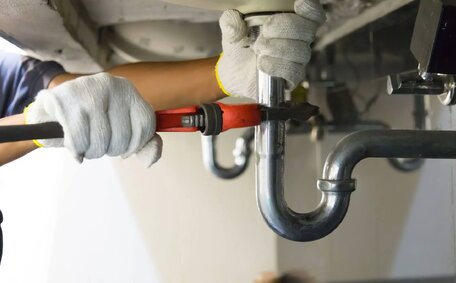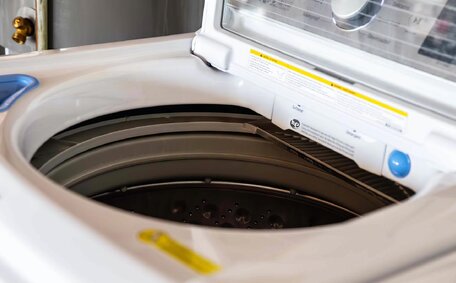Introduction to Water Quality and Its Impact on Hot Water Systems
The quality of the water supply to hot water heaters is crucial for their effective functioning and longevity. As trusted Carlingford plumbers since 2000, Carlingford Plumbing understands the impact of water quality on hot water systems. This piece provides insights into the influence of water quality on hot water systems and practical guidance for homeowners.
Water contaminants can compromise internal components, resulting in corrosion, mineral build-up, bacteria growth and more, which reduces efficiency and lifespan of hot water systems.
- How water contaminants affect hot water systems
- Temperature guidelines to inhibit bacteria growth
- Preventative measures such as water softeners
- Troubleshooting tips for existing issues
- The importance of regular hot water system maintenance
Grasping this relationship enables homeowners to safeguard their systems, enhance efficiency, and conserve energy.
How Water Hardness Causes Scale Buildup and Corrosion
Water hardness, indicated by dissolved calcium and magnesium levels, impacts water systems, with heat pumps offering a mitigation strategy. As hard water is heated in hot water systems, these minerals solidify into scale that can build up inside tanks, pipes, heating elements, and other components.
The accumulation of scale can insulate the water from the water heating element, thereby diminishing water heater efficiency. It also slowly corrodes metal components through electrochemical reactions. Consequently, hot water systems in hard water areas require more frequent replacements of the anode rod.
Detached chunks of loose scale within cold water pipes can clog fixtures or taps. Left unchecked, large scale buildup can completely block water flow. The impact on hot water systems, where issues can build, includes:
- Reduced heating efficiency
- Increased running costs
- Corroded components
- Frequent part replacements
- Eventual appliance failure
Installing and maintaining a water softener or filter system effectively combats hard water. Alternatively, Carlingford Plumbing can professionally de-scale existing buildup and suggest solutions to sort out your water heater.
Temperature Settings and Bacterial Growth
Precise water temperature regulation is essential to prevent bacteria like Legionella from thriving. Health authorities commonly recommend storing water at a minimum of 60°C to ensure sanitation and inhibit bacterial growth. Temperatures below this threshold can facilitate rapid bacterial colonization.
Legionella bacteria proliferate in tepid water, especially when it is static, in the temperature range of 25-45°C. Ensuring water maintained at temperatures of 120°F or higher guarantees Legionella cannot survive, rendering it safe to drink. Therefore, precise calibration of water temperature is also important to ensure safe drinking water and preserve the system’s overall health.
Maintaining appropriate temperatures safeguards against bacteria in the tank and ensures tap water is hot enough to eradicate pathogens.
Exposure to Legionella, particularly in gas-heated water systems, can lead to illnesses such as Pontiac Fever and the more severe Legionnaires’ disease. Gas continuous storage water heaters offer more precise temperature control compared to electric and solar models, which may fluctuate due to heating cycles and weather.
Controlling hot water temperature is therefore imperative. This underscores the importance of regular testing of your hot water tap to keep your water safe and identify any potential issues.
Carlingford Plumbing can expertly calibrate your system’s temperature settings for optimal safety and water quality protection. We also offer testing and preventative treatments to inform you about water quality, keep it safe and inhibit bacterial growth. Discovering information about water heater temperature maintenance is crucial for the environmental health of your family and the efficiency of your system.
Sediment Buildup and Its Hidden Dangers
Sediments and minerals from hard water can gather at the tank’s bottom over time. This often concealed buildup can impair the system’s heating efficiency, potentially leading to substantial problems. As layers of sediment build up, they can shield the water from efficiently heating, which may negatively impact your system’s efficiency.
Equally troubling are the health risks posed by sediment entering drinking water lines. Dislodged sediment can clog fixtures or taps and, if not addressed, excessive buildup can cause complete system failure.
Flushing your water heater tank by a professional every 1-3 years, based on water quality and usage, can substantially reduce water sediment buildup. This descaling practice, critical for systems compromised by contamination, enhances heating efficiency and extends system lifespan. It also reduces the risk of sediment issues downstream.
For more information on periodic maintenance flushing tailored to your specific water quality, as your local Carlingford plumber, we’re here to advise. Preventative descaling provides long-term savings by enhancing operational efficiency and avoiding premature system failure due to sediment accumulation.
The Necessity of Regular Maintenance
Consistent servicing is key to preserving the integrity, performance, and longevity of water heating systems. Over time, contaminants, temperature shifts, and general wear can damage system components, if not periodically checked.
Crucial maintenance for gas continuous flow systems, also known as tankless gas water heaters, includes:
- Inspecting for corrosion and scale buildup
- Checking and servicing water pressure relief valves
- Testing and adjusting temperature settings
- Replacing worn parts like the heating element and anode rods
- Flushing sediment and mineral deposits
While basic inspections can maintain water quality, complex maintenance tasks might require a local plumbing contractor’s expertise. As trusted Carlingford plumbers, our qualified technicians can help ensure your hot water system receives optimal servicing.
Routine maintenance helps prevent potential water-related issues from becoming costly repairs or replacements by early detection and resolution. We offer tailored solutions to suit your unique water quality and usage needs. Committing to regular professional maintenance affords you peace of mind and also promises that your hot water system functions safely and efficiently over the long term.
Water Contamination Issues and Filtration Solutions
Drinking water may contain numerous contaminants that adversely affect hot water systems. For example, chloride levels above 200mg/L can hasten corrosion in water heaters. Other issues, such as air pollution, include:
- Hardness minerals, specifically calcium and magnesium compounds, which can cause scale buildup
- Corrosive elements that degrade metal components
- Sediment that accumulates in your rainwater tanks and traditional water structures
- Bacteria and pathogens that pose health risks
To counteract these contaminants and maintain your water quality, whole-home filtration for your water supplies is an effective solution. Solutions include:
- Water softening systems to extract hardness minerals
- Sediment filters designed to trap fine particles in water
- Carbon filtration to absorb chlorides and chemicals
- UV sterilisation to kill bacteria
Applying the right water filters can significantly prolong your hot water system’s life by filtering out harmful contaminants. This is especially critical when chloride levels exceed 200mg/L, as this can invalidate warranties.
Your trusted local plumber, Carlingford Plumbing, can advise on the various types of hot water filtration systems suitable for your unique water quality. We provide professional installation and maintenance services to protect your hot water system from contamination issues.
Preventive Measures To Protect Your Hot Water System
There are several key preventive measures homeowners can implement to protect their hot water systems from scale buildup, corrosion, and premature failure:
Test Your Water
Begin maintaining your hot water system by using a water filter to assess annual quality metrics and identify if any corrosive substances or hardness minerals surpass recommended levels. This proactive approach helps you consider water treatment options in accordance with water guidelines before any issues surface.
Install Water Filtration
Comprehensive whole-home water treatment solutions, like softeners and sediment filters, can remove damaging contaminants from your gas hot water system, optimising efficiency and longevity.
Maintain Ideal Temperature Settings
Accurate water temperature calibration ensures your system delivers heat effectively and keeps water bacteria-free. Storage temperatures of more than 120°F are vital to inhibit Legionella.
Flush The Tank Regularly
Professional descaling every 1-3 years removes hidden sediment and mineral deposits in the tank.
Schedule Annual Maintenance
While basic inspections can be done at home, it’s prudent to have a qualified professional service your system to identify and address minor issues before they escalate.
Protective measures can lower the risk of preventable malfunctions and boost your hot water system’s efficiency. Contact our licensed Carlingford plumbers for assistance with identifying your water heater requirements or to schedule an annual service. Photo credit for professional expertise should be directed to 1300 349 338 or email jobs@carlingfordplumbingservices.com.au





